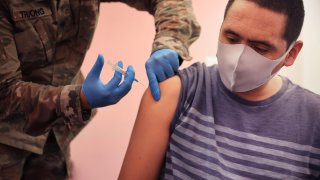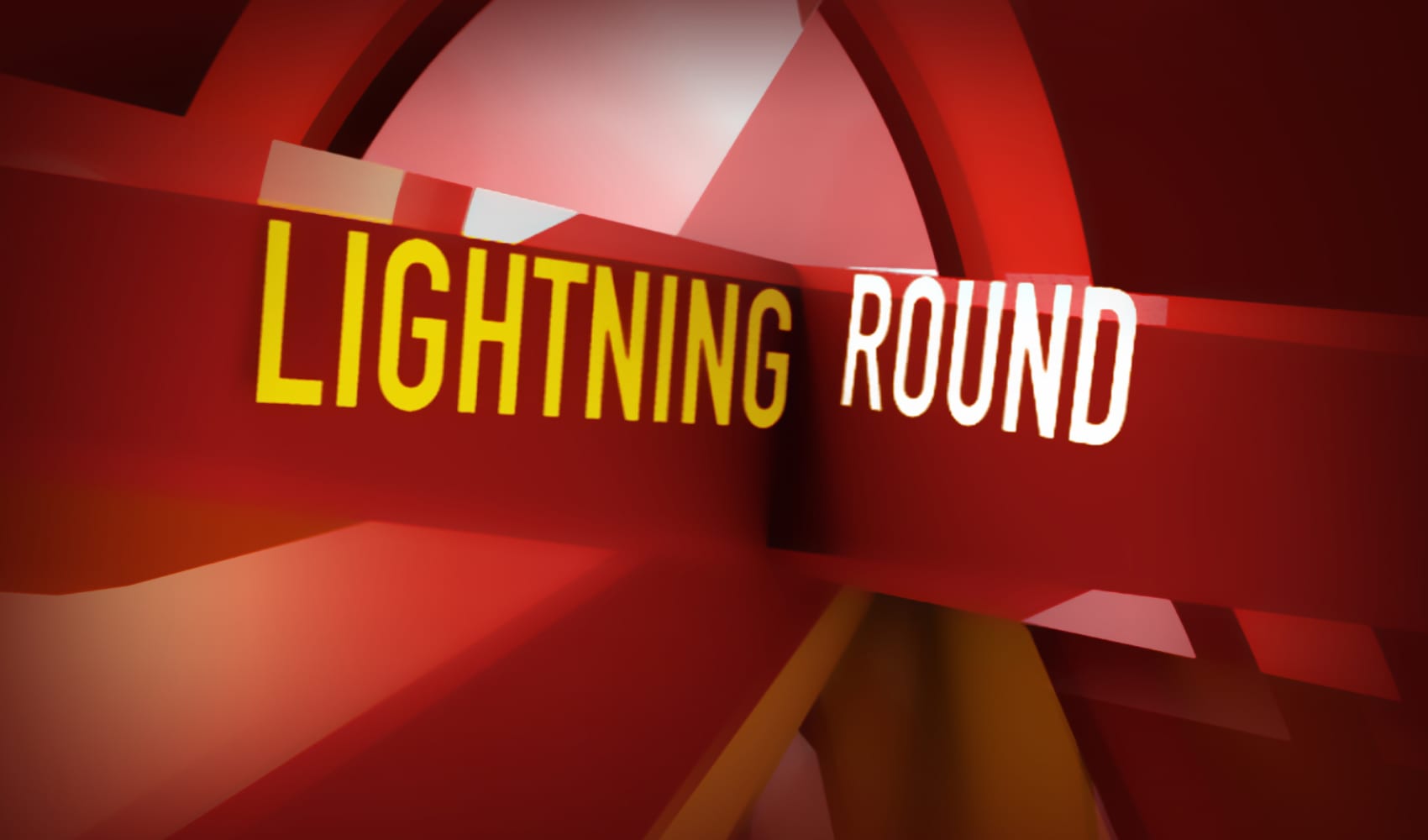
- FDA scientists on Tuesday declined to take a stance on whether to back booster shots of Moderna's Covid-19 vaccine.
- They said data shows two doses are still enough to protect against severe disease and death in the U.S.
Food and Drug Administration scientists on Tuesday declined to take a stance on whether to back booster shots of Moderna's Covid-19 vaccine, saying data shows two doses are still enough to protect against severe disease and death in the U.S.
"Some real world effectiveness studies have suggested declining efficacy of Moderna COVID-19 Vaccine over time against symptomatic infection or against the Delta variant, while others have not," they wrote in a 45-page document published on the agency's website. "However, overall, data indicate that currently US-licensed or authorized COVID-19 vaccines still afford protection against severe COVID-19 disease and death in the United States."
FDA staff similarly didn't take a stance on Pfizer's Covid booster shots last month. That didn't stop the agency's Vaccines and Related Biological Products Advisory Committee from recommending third shots. The committee rejected Pfizer's original plan to distribute the boosters to everyone 16 and older, paring that back to those most at risk of Covid, including the elderly and people with other health conditions. FDA officials later expanded those eligible to include people who worked or lived in settings that put them at high risk of exposure, like health-care and grocery store workers.
The report by FDA scientists is meant to brief the committee, which meets Thursday to review Moderna's request to clear Covid booster doses for adults. The documents published offer a glimpse of the agency's view on third shots.
The meeting comes less than a month after U.S. regulators authorized Covid booster shots of Pfizer and BioNTech's vaccine to a wide array of Americans, including the elderly, adults with underlying medical conditions, and those who work or live in high-risk settings like health and grocery workers.
Money Report
The FDA advisory group is scheduled to discuss data on the safety and effectiveness of Moderna's booster shot in adults on Thursday and Johnson & Johnson's on Friday. The agency could make a final decision within days of the meetings, handing it off to the Centers for Disease Control and Prevention and its vaccine advisory committee to make their own decision, likely next week.
Moderna applied for authorization of a booster dose with the FDA on Sept. 1. The company said the results are based on a clinical trial of roughly 170 adults, fewer than the 318 people studied for Pfizer's booster. Moderna said a third shot at half the dosage used for the first two jabs was safe and produced a stronger immune response than what was seen after the second dose in its phase three clinical trial.
Feeling out of the loop? We'll catch you up on the Chicago news you need to know. Sign up for the weekly Chicago Catch-Up newsletter.
Moderna is asking the FDA to clear boosters for the same vulnerable groups eligible to receive Pfizer's third doses – anyone age 65 and older, adults at high risk for severe Covid cases, and workers over 18 with an increased likelihood of occupational exposure to the virus.
Side effects of Moderna's boosters were comparable with those experienced after the second dose, the company wrote in a separate document released Tuesday by the FDA. Most adverse reactions were low in severity, and Moderna reported no cases of a rare heart inflammation condition, myocarditis or pericarditis, in trial participants up to 29 days after they received their boosters.
The Biden administration hopes giving the U.S. population additional doses will also continue to ensure long-term and durable protection against severe disease, hospitalization and death as the fast-moving delta variant continues to spread.
The strain led to a surge in hospitalizations in the U.S., mainly among the unvaccinated. Still, some vaccinated Americans have suffered so-called breakthrough infections and just more than 19,000 of them — less than 1% — have been hospitalized or died with Covid as of Sept. 20, according to data compiled by the CDC.






